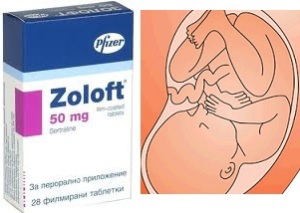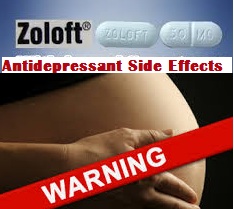Reports suggest Pfizer was aware of Zoloft birth defect side effects from an internal assessment, but never accepted it publicly or warned consumers. The management of the antidepressant manufacturer was communicated by one of its drug-safety officials last year over internal findings linking Zoloft to pregnancy-linked newborn deformities. The failure to act on the report and continued denial of any birth defect risk linked to its antidepressant may complicate matters for Pfizer in its defense against over 1,000 Zoloft birth defect lawsuit filings around the country.
In April 2014, a top official of Pfizer’s Worldwide Safety Strategy division, Francesca Kolitsopoulous, proposed label modifications for Zoloft to include warning about potential birth defects following its use during pregnancy. While reviewing research reports, she discovered potential association between the prenatal exposure to the antidepressant and heart, abdominal, intestine, and other deformities in newborns.
Disclosures Dig Dip, Cites 1998 Report
A Zoloft birth defect lawsuit filed in a Philadelphia court a few weeks ago was the first to highlight the revelation to support its claim for $2.4 million in financial damages. The Zoloft lawyer representing the plaintiff has cited “hole in heart, growth retardation, persistent pulmonary hypertension, congenital heart disorders, and omphalocele or protrusion of liver and intestines” among newborn abnormalities linked to the antidepressant in an internal report of Pfizer.
The report dates back to 1998 and was prepared based on review of 50 pregnancy-linked Zoloft birth defect reports by the manufacturer. Pfizer safety monitors reportedly admitted that the antidepressant use by pregnant woman “couldn’t be ruled out as a cause” of congenital defects in babies born to them. They found Zoloft pregnancy side effects as strongly related to newborn abnormalities in at least 16 cases and possibly related in another 25 cases.
Though Pfizer has dismissed the revelation as “cherry-picked data,” the disclosure makes it difficult for the company to reject claims of suppression of information on potential side effect risks.
The incident reminds many Zoloft lawyers about Paxil birth defect lawsuits. GlaxoSmithKline denied allegations of birth defect linked to use of Paxil antidepressant by pregnant mothers until it was investigated by the public authorities following similar disclosures. Glaxo paid $3 billion to the government and $1 billion to 800 plaintiffs to settle claims related to its antidepressant.
Zoloft Birth Defects
Zoloft ranks among the most prescribed antidepressants. However, the drug is named in over 1,000 Zoloft birth defect lawsuit filings that allege the drug caused birth defects in newborns when used by pregnant women. Many research studies have also warned of both fatal and non-fatal injuries in children exposed to the antidepressant at the prenatal stage.
- According to researchers from Havard, Zoloft has the potential to result in “two-fold risk of attention deficit hyperactivity disorder” in babies when mothers are treated with the antidepressant during pregnancy.
- Chiari type 1 brain malformation are likely to develop in babies due to Zoloft pregnancy side effects, claims Neuropsychopharmacology journal.
- Children are likely to born with vertebra and brain abnormalities following Zoloft ingestion by mothers, say reports in Human Reproduction and New England Journal of Medicine.
- Autism risk associated with Zoloft birth defects, a fact affirmed by researchersat Johns Hopkins University.
- The FDA has warned of persistent pulmonary hypertension in babies linked to antidepressant use by expectant mothers.
- Various studies highlight heart defects, developmental delays, and physical deformities.
If you have a claim involving Zoloft birth defect in children, please contact us or call on 1-800-632-1404 for a free evaluation of your potential lawsuit.






